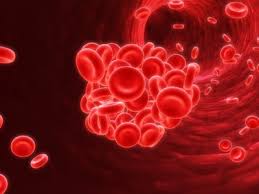
Dr. Maxwell Nartey
Professor of Symptometric Science, American School of Symptometry, NFP
World Center for Health Education & Scientific Enlightenment
The hormones the pituitary gland produces, regulate the start and the flow of menstrual blood. However, it is the hypothalamus that regulates the release of all hormones.
If the hypothalamus is congested, or it is in disrepair, it will malfunction. A malfunctioning hypothalamus must be repaired, and as the hypothalamus is being repaired, capillary fragility must also be reversed. Symptometry advises on how to repair the hypothalamus, and reverse capillary fragility.
The women who do not or cannot repair their dysfunctional hypothalamus, and reverse capillary fragility will experience all kinds of menstrual regularities. One of such irregularities is, metrorrhagia (heavy menses). Sometimes, women who have heavy menses do also experience prolonged menses, frequent spotting, clotting anomaly, or they have menses twice a month.
Capillary fragility causing anemia
Menstrual blood flows with force, and with compression pressure. Therefore, if the uterine capillaries do not have enough tensile strength to cope with compression pressure, they will rupture, thereby spilling a lot of blood to cause metrorrhagia. Since blood loss is also hemoglobin loss, the woman who loses a lot of menstrual blood will also not have enough hemoglobin. Hence, the low level of hemoglobin and hematocrit.
The lower the number of red blood cells, the lower would be the number of hemoglobin and oxygen. Anemia is defined by the scarcity of red blood cells and hemoglobin. Would blood transfusion help a woman who is extremely anemic? It may help temporarily. Would taking ferrous sulfate help? It may also help temporarily but ferrous sulfate is not iron. It is the salt of iron.
Use of feminine pads
Some feminine pads are better than others because they are safer. They are safer because they are not made with the toxic chemicals that the woman’s vaginal tissue will absorb. If the vaginal tissue absorbs the chemicals that are in the pad, the woman will experience severe or chronic vaginal discharge, which could be yellow or green depending on the chemicals that were absorbed.
Some feminine pads have caused severe vaginal itch, nymphomania (intense sexual appetite), tiny ulcers in the labia majora or labia minora that were unfortunately, misdiagnosed as genital herpes.
Feminine pads have also caused swollen labia, ovaritis (inflammation of the left or right ovary) with severe pain, pain in the vagina during intercourse, vaginal odor, itching in the area between the anus and the vagina; vaginal cancer, vaginal polyps, vaginal abscess, bacterial vaginosis, or vaginal dryness.
The good news is, Symptometry is now available to help women to reverse the above-mentioned distressing anomalies.
Birth control pills
Many women who were on birth control pills to decrease the flow of their menses ended up suffering from endometriosis. A few others could not conceive because of the extensive damage that was done to their endometrium. The rest suffered miscarriages.
Decreasing the flow of menstrual blood is not the issue. The real issues are: 1) a congested and malnourished pituitary gland 2) a dysfunctional hypothalamus, and 3) capillary fragility.
If these three problems can be solved, and Symptometry provides guidance as to how to solve them, a woman will have a safer option to solve her metrorrhagia than the options she currently has.
Why iron is important
Iron is important to every woman for three reasons:
- Acetylcholine, the neurotransmitter for intelligence and memory, requires iron-based enzymes to speed up its production.
- The ATPs (adenosine triphosphates) that store energy, are made with iron. Therefore, a woman who does not have enough ATPs before her cycle began will be extremely tired after her cycle.
- The clotting mechanism and the hemocytoblasts that produce platelets, white blood cells and red blood cells, are made with iron. Therefore, a woman who does not have enough iron will see clots in her menstrual blood.
This is how iron is important to every woman regardless of her age; and it is better to have ferric iron than to have ferrous sulfate. Why ferric iron? Here are the four reasons for preferring ferric iron to ferrous sulfate:
- Ferric iron has a better iron-binding capacity than ferrous sulfate.
- Our cells recycle ferric iron more efficiently to prevent iron toxicity.
- Ferric iron holds three oxygen atoms; ferrous sulfate can only hold two. As far as oxygenation is concerned, three atoms of oxygen are better than two, especially to broaden the support base of hemoglobin so that the woman’s cells and tissues are well oxygenated.
- Three oxygen atoms give blood a beautiful ruby red odorless color. Also, the ruby red color is an indication that the entire uterus is well oxygenated. Fewer than three atoms of oxygen would make menstrual blood dark. Many women menstruate black blood, an indication that their uterus is extremely unhealthy.
Menstruation is every woman’s report card. It shows 1) how much oxygen she has in her uterus 2) her HDL (high-density lipoprotein) level, and 3) her iron level. If there are anomalies, Symptometry should be contacted without delay to rectify these anomalies.
Connection between heavy menses and memory problems
Most women are not aware that a long history of heavy menses will cause memory problems in the future. Some have even had mental problems. Here is why.
As the number of acetylcholine decreases so does the woman’s cognitive ability, focus, concentration, memory, and intellect. This constant deterioration is happening because the woman cannot produce iron-based enzymes to keep accelerating the production of acetylcholine.
The iron in plants is not heme iron. It is non-heme iron. Enzymes are required to convert non-heme iron to heme iron. Therefore, if a vegan or a vegetarian cannot produce enzymes to convert non-heme iron to heme iron, she will have menstrual problems, and many intellectual and memory problems associated with acetylcholine deficiency.
The memory pills or herbs that are sold pale in comparison to the acetylcholine that our brain cells produce. This is why in order to stop memory problems the needs of the brain cells must be satisfied; and it is Symptometry that satisfies the needs of the brain cells.
The diseases caused by acetylcholine deficiency include: forgetfulness, dementia, amnesia and full-blown Alzheimer’s disease. Regrettably, these diseases are common among women who have had a long history of heavy menses, prolonged menses, spotting, and bleeding between periods.
Therefore, in order to prevent these diseases that will certainly occur in certain women, capillary fragility must be reversed, and the hypothalamus must be decongested.
Iron from food
Is iron from food enough? No, it is not enough, and it has never been enough. Here is why.
Fish has less heme iron than poultry; and poultry has less heme iron than meat. There is no heme iron in nuts, edible greens, plantain, etc. Therefore, it is a woman’s diet that will determine the level of heme iron in her body.
Almost every woman on this planet is anemic, and here is what they are missing.
A woman needs between 1,200 mg. and 1,400 mg. of HDL (high-density lipoprotein) every day; and between 600 mg. and 900 mg. of heme iron every day. If she cannot have these amounts of heme iron and HDL in her body every day, she will have many hormonal, emotional and mental problems, which unfortunately, will get worse as she ages.
Contrary to Hippocrates’ recommendation inviting individuals to turn food into medicine, and medicine into food, food has never made a person healthy in the homo sapiens’ 200,000-year history on this planet.
Therefore, relying on food to stay healthy is wrong. It is food that continues to cause over 94% of human diseases. Food is a killer. Hence, the importance of scientific eating and living that Symptometry created.
© Copyright 2021, The American School of Symptometry, NFP. No part of this publication may be reproduced or transmitted in any form or by any means, electronic or mechanical, including photocopying, recording, or by any information storage and retrieval system without the written permission of The American School of Symptometry, NFP. Library of Congress copyright number Txu 1-621-370, Washington D.C.


 Previous Post
Previous Post Next Post
Next Post